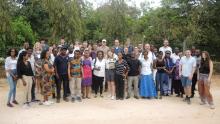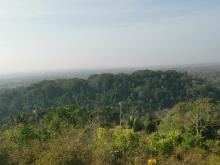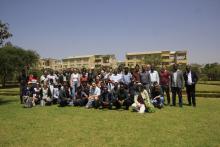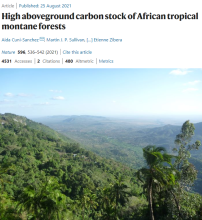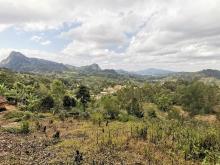The current biodiversity crisis is particularly pronounced in the tropics, where demographic pressure is high and many ecosystems are fragile. Intact ecosystems provide important habitats for biota and various ecosystem services for people, and thus support livelihood quality. It is therefore essential to preserve biodiversity not only in nature reserves, but also across anthropogenic landscapes. Hereby, the involvement of local communities plays a central role, and strongly influences people´s attitudes and behaviour towards nature and conservation. Exclaves of remaining natural ecosystems are today mainly protected areas such as nature reserves, but often also sites of cultural relevance, such as sacred sites. The preservation of sacred sites combines the preservation of people´s culture and biodiversity. Both, culture and biodiversity may positively influence into the surrounding landscapes. In this activity, we establish a transdisciplinary network of researchers, students and stakeholders, to study and learn about the relevance of cultural forest sites. Thus, both, natural and social sciences approaches will be strongly interlinked in these activities, which will consecutively take place in three phases:
- Assessing ecosystem health, understanding coherences and interactions for selected sites
- Identifying relevant stakeholders which may communicate potential improvement
- Implementation of ideas to restore and improve environment, and to sensitize the local people for cultural and traditional values.
Funding: German Academic Exchange Service - Deutscher Akademischer Austauschdienst
Latest News





